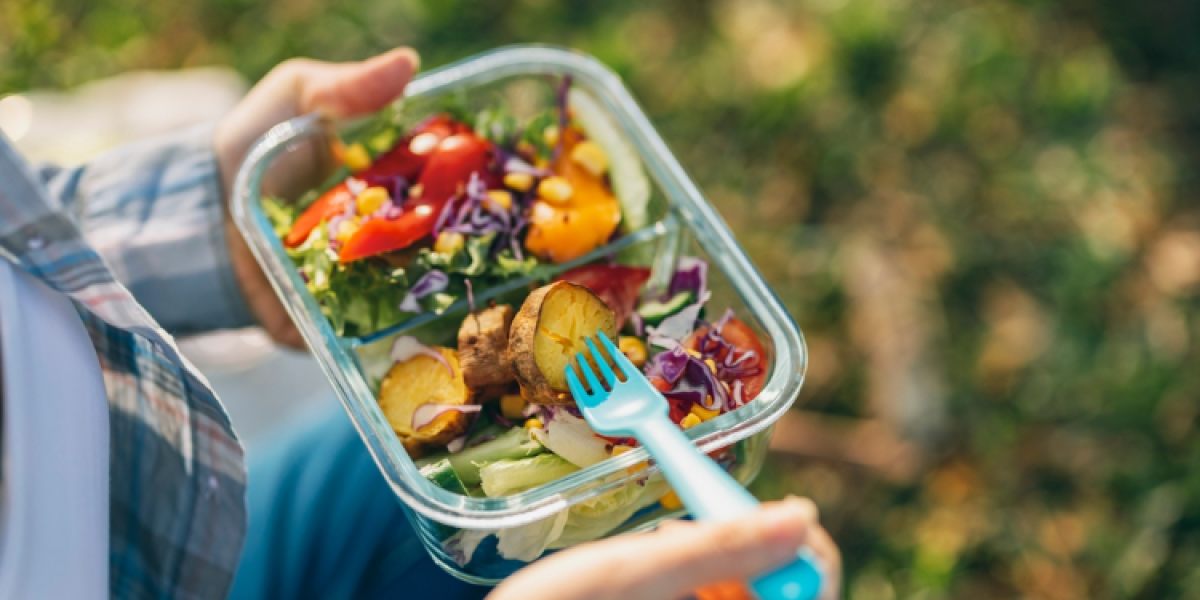
Adjusting to new food abroad involves more than just overcoming a psychological barrier or embracing an adventurous spirit. Your body may be sensitive and resistant to unfamiliar foods. How can you take care of your health while adjusting to a new culinary landscape? Here are some tips.
Nearly 80% of expats have experienced digestive problems
The insurance company Allianz published a study this year about expats' gut or digestive health. They surveyed around 3,000 expats from countries like the UK, the US, Germany, India, the Philippines, Singapore, and South Africa. Most respondents were young adults aged between their mid-20s and mid-40s. These expats had relocated to destinations such as the UAE, Qatar, Singapore, Hong Kong, Switzerland, the UK, and Germany.
77% of respondents said their digestive health has negatively impacted their overall well-being. Furthermore, 42% became more aware of these issues after moving abroad, suggesting that their gut problems worsened in a new environment. For 46%, the stress associated with living abroad has contributed to their declining digestive health – not just their new diet. Expats report an overreliance on canned or highly processed foods while living abroad despite having eaten fresher and more diverse options back home. Many find it challenging to locate familiar foods from their home countries that do not trigger their health issues. 10% even state that finding these foods is even "extremely difficult."
An unfamiliar diet or even dysfunctional eating while abroad can affect more than just the digestive system. It can also lead to acne and other skin problems, alter cholesterol and blood sugar levels, cause you to gain or lose weight, and affect the management of chronic hormonal issues like PCOS and endometriosis in women expats.
Common health-related food challenges while living abroad
Spice levels
This is a common problem for expats who move from countries with milder cuisines to those with spicier cuisines. “Mildly spicy” can mean completely different things in India or Thailand than in the UK! Eating food spicier than what you're accustomed to can lead to heartburn, acne breakouts, etc.
Fortunately, there are always a few spots or services in cities that sell mild food. For example, the Indian catering service Homefoodi, available in major northern cities like Delhi and Gurgaon, provides non-spicy food for home delivery. Major international restaurant and café chains tend to have similar spice levels across the globe. However, you might not want to travel across the globe to enjoy the same burgers you can get at home!
If you want local food, ask the cook to make a milder version. Each cuisine also has some milder dishes. For example, in Thai cuisine, the creamy Tom Kha Gai soup, made with coconut and chicken, is milder than the more famous Tom Yum soup.
Milk
Milk might seem like a common drink that should be easy to find anywhere. But look closer, and it gets more complicated. How fresh is the milk in your new home, and how high is its lactose content? Is powdered milk more accessible and affordable there? How readily available are non-dairy alternatives for expats who are lactose intolerant or vegan?
Be careful: the lactose content of the local milk can cause you unexpected health issues, even if you've consumed dairy all your life. One Mauritian expat we interviewed says that she became lactose intolerant in her 30s after moving to Kigali, the Rwandan capital. Rwanda has a robust dairy industry, so the milk there is very fresh and high in lactose. This expat had grown up with imported powdered milk with a much lower lactose content, so her body was unused to the fresher milk in Rwanda. Her body reacted by developing a dietary intolerance later in life. When you are unsure if your body will tolerate local dairy products, it's safer to opt for non-dairy alternatives.
Non-dairy alternatives will vary by country. If you grew up in the UK, you may be used to oat milk as the most common alternative in coffee shops. However, if you move to China, you will find that fresh soy milk is everywhere and is extremely affordable. As long as your body adapts to soy milk, buying bottled, imported, and expensive oat or almond milk would make little sense. A popular Chinese breakfast is fried doughsticks, called “youtiao,” dipped in hot, fresh soy milk.
Gluten-free and complex carbohydrates
Expats who suffer from gluten intolerance (also known as celiac disease) can struggle with food options abroad, especially outside of major cities. Furthermore, gluten-free food in organic stores can be much more expensive in countries where fewer people have gluten intolerance or where there is less awareness about the disease.
A more budget-friendly option is to find local foods that are naturally gluten-free. The popular South Indian dosa, a thin crepe with various fillings (usually including potato), is naturally gluten-free because it is made from rice and gram flour, not wheat. In Mexico, try to find tacos made with 100% corn tortillas — not tortillas in which wheat flour has been mixed with the corn. As Mexican cuisine is very heavy on corn and rice, it should not be difficult to find dishes that use only these two as staple carbohydrates and include no wheat.
Expats with diabetes or other health issues related to insulin (e.g., PCOS) often need to consume only complex carbohydrates: brown rice, brown noodles, and brown pasta. What if these are not readily available or affordable in your new home? Once again, the trick is to find local alternatives. Buckwheat or soba noodles are easy to find across all of East Asia. As reported by medical sources, it has a low glycemic index and is great for people with insulin or blood sugar issues. Other alternative low-GI grains are millet and quinoa.
Vegetarian and vegan food
Vegetarian and vegan expats run the risk of developing health issues like anemia if they do not find suitable sources of protein. Many regions have a local vegetarian/vegan tradition that might not map fully onto “Western” notions of vegetarian/vegan food. In East Asian countries, Buddhism has created an old and rich tradition of vegetarian/vegan cuisine. You can expect to find vegetarian/vegan eateries in the areas surrounding Buddhist temples, such as around the Lama Temple in the Dongcheng area of Beijing (near which you can find the Xiu Xiang Zhai Vegetarian Restaurant!).
Even if you're cooking at home with local ingredients rather than buying takeout, research local recipes you can make with fresh, locally-sourced, affordable ingredients that contain vegetarian protein (e.g. tempeh in Indonesia and across Southeast Asia, kimchi/pickled vegetables in South Korea).
Avoid relying on processed or canned food
As the study by Allianz shows, expats tend to eat less diverse and fresh food abroad than back home.
Several factors contribute to this. In an unfamiliar new culinary landscape, you might cling to a limited range of familiar foods. Back home, you might have lived with your family and cooked together — meanwhile, in a new country, there's a high chance that you live alone and work long hours, so you stock up on instant noodles or canned meat instead of cooking proper meals. The higher cost of living in your new country might also make you buy canned and processed food (e.g., frozen pizza) to save money. In Allianz's study, expats who move to more expensive destinations (the UK, Switzerland, and the UAE) report consuming more highly processed food.
However, this can have a long-term effect on your health, as these foods are high in sodium, unhealthy fats, and chemical preservatives. They also often lack key nutrients. In the study by Allianz, expats report unwanted weight changes and bloating issues after moving abroad.
It's better to ask locals about farmers' markets where they shop for fresh produce. If you really have no choice but to rely on canned and processed food, try to buy supplements from a local pharmacy to ensure that your body is getting the supplements it needs. If you live in a remote area, try stocking up on them whenever you visit the nearest town or city.



















